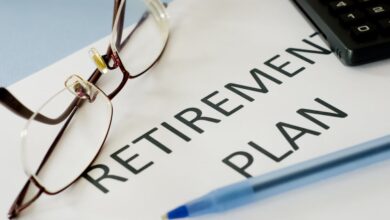Everything You Need to Know About Builders Risk Insurance

Construction projects are full of risks. From natural disasters to theft and vandalism, there are countless things that can go wrong on a job site. Builders Risk Insurance, also known as Course of Construction Insurance, is a specialized type of property insurance designed to protect construction projects from unforeseen events. In this comprehensive guide, we’ll delve into everything you need to know about Builders Risk Insurance, including what it covers, who needs it, and how it works.
1. What is Builders Risk Insurance?
Builders Risk Insurance is a temporary, specialized insurance policy that provides coverage for buildings or structures during construction, renovation, or repair. The policy is designed to protect the insured against the financial consequences of physical loss or damage to the project.
Unlike general liability insurance, which protects against claims of third-party injury or damage, Builders Risk Insurance focuses specifically on protecting the physical structure itself. It covers damages caused by events like fire, wind, theft, and vandalism, providing peace of mind to contractors, project owners, and developers.
2. Who Needs Builders Risk Insurance?
Builders Risk Insurance is essential for anyone involved in a construction project. This includes:
- Contractors: As the individuals responsible for the construction work, contractors often carry Builders Risk Insurance to protect their investment in the project.
- Property Owners: If you’re a property owner overseeing a renovation or new construction, Builders Risk Insurance ensures that your financial interests are protected.
- Developers: Large-scale developers managing multiple projects should also invest in this insurance to cover their projects from potential damage or loss.
- Lenders: Many financial institutions require Builders Risk Insurance as a condition for providing construction loans.
Ultimately, the responsibility for obtaining Builders Risk Insurance typically falls on the contractor or property owner, but it’s important to clarify who will purchase the policy in the contract.
3. What Does Builders Risk Insurance Cover?
The coverage provided by Builders Risk Insurance is wide-ranging and protects against various types of damage. Here are the common perils covered under a typical policy:
- Fire: Construction sites are vulnerable to fires, and Builders Risk Insurance covers the damage caused by fire, whether accidental or due to other factors.
- Windstorms: If your project is damaged by strong winds, hurricanes, or tornadoes, your policy will cover the necessary repairs.
- Theft and Vandalism: Construction materials and equipment are prime targets for theft. Builders Risk Insurance can reimburse the cost of stolen materials and cover damages caused by vandals.
- Lightning: Any damage caused by a lightning strike to the project is typically covered.
- Explosion: If an explosion occurs on the site and causes damage, the policy will cover the repairs.
- Hail: Hail can cause significant damage to buildings and materials, and Builders Risk Insurance provides coverage for this type of event.
- Damage from Vehicles or Aircraft: If an external vehicle or aircraft accidentally crashes into the site, the damage is covered.
4. What Isn’t Covered by Builders Risk Insurance?
While Builders Risk Insurance provides broad coverage, there are some key exclusions that you should be aware of. Most policies will not cover:
- Normal Wear and Tear: Damage that occurs due to normal aging or use of materials is not covered.
- Employee Theft: If a construction worker or employee steals materials, this typically won’t be covered under Builders Risk Insurance.
- Subcontractor Errors: Faulty workmanship or errors made by subcontractors may not be covered, although separate policies, like contractor’s liability or professional liability insurance, can address these issues.
- Acts of War: Any damage caused by acts of war or terrorism is usually excluded.
- Earthquakes and Floods: These natural disasters are often excluded from standard policies, though coverage may be available as an add-on or through separate insurance.
5. How Long Does Builders Risk Insurance Last?
Builders Risk Insurance is designed to be temporary, lasting only for the duration of the construction project. Most policies are written for a term of 3, 6, or 12 months, depending on the project’s timeline. However, if the project runs longer than expected, the policy can often be extended with the insurer’s approval.
Once the project is completed or the building is occupied, Builders Risk Insurance typically expires. At this point, the property owner will need to transition to a permanent property insurance policy to continue protecting the asset.
6. How Much Does Builders Risk Insurance Cost?
The cost of Builders Risk Insurance varies depending on several factors, including:
- Project Value: The higher the value of the project, the more expensive the insurance will be. A multi-million dollar commercial development will carry a higher premium than a small residential renovation.
- Location: Projects in areas prone to natural disasters, such as hurricanes or wildfires, will have higher premiums due to the increased risk.
- Scope of Coverage: If you choose a policy that includes broader coverage, such as adding protection for earthquakes or floods, the premium will increase accordingly.
- Project Duration: Longer projects may result in higher insurance costs because there’s a greater window for potential damage.
- Deductibles: Like other forms of insurance, Builders Risk policies have deductibles that must be paid out of pocket before the insurance kicks in. Higher deductibles can lower the premium, but they also increase your financial responsibility in the event of a claim.
On average, Builders Risk Insurance costs range from 1% to 4% of the total construction cost. For example, if a project is valued at $1 million, the insurance could cost between $10,000 and $40,000 for the duration of the project.
7. How to Choose the Right Builders Risk Insurance Policy
Choosing the right Builders Risk Insurance policy can be challenging, especially if you’re not familiar with the industry’s ins and outs. Here are some steps to help you choose the right policy:
- Assess the Risks: Consider the specific risks your project faces. For example, if your site is in an area prone to hurricanes, you may want a policy that includes windstorm coverage.
- Work with an Insurance Broker: An experienced insurance broker can help you navigate the complexities of Builders Risk Insurance and tailor a policy to meet your unique needs.
- Compare Policies: Don’t settle for the first policy you find. Compare quotes from different insurers to ensure you’re getting the best coverage for your project at a reasonable price.
- Understand the Terms: Read the policy carefully to ensure you fully understand what’s covered and what isn’t. If there are exclusions that concern you, ask your insurer about possible add-ons or additional coverage options.
8. The Importance of Builders Risk Insurance
Construction projects involve a substantial financial investment. Builders Risk Insurance protects that investment, ensuring that unforeseen events don’t derail your project or lead to significant financial loss. Without this insurance, you could be left with costly repair bills or even the total loss of your project in the event of a disaster.
In many cases, lenders and project owners require Builders Risk Insurance as a condition of financing, so it’s not just a smart choice — it’s often a necessity. By securing the right policy, you can focus on completing your project, knowing that your investment is protected.
Conclusion
Builders Risk Insurance is an essential part of any construction project, whether you’re building a new structure or renovating an existing one. It provides crucial protection against a range of risks, from natural disasters to theft and vandalism. By understanding what Builders Risk Insurance covers, who needs it, and how it works, you can make informed decisions to safeguard your project and ensure its successful completion.


